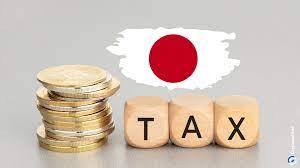Additionally, Japanese Prime Minister Shigeru Ishiba states that “the healthy development” of cryptocurrency is “extremely important.”
By the end of June this year, Tokyo will examine the country’s contentious and widely criticized cryptocurrency tax regulations, according to a pledge made by Japanese Finance Minister Katsunobu Kato.
Kato made the remarks during a plenary session of the House of Representatives on the 31st, according to the House of Representatives’ official website and a report from the Japanese-language media outlet Iolite.
Japanese Finance Minister: Authorities Prepare to Examine Cryptocurrency Taxes
Akihisa Shiozaki, a lawmaker from the Liberal Democratic Party (LDP) and the chairman of the party’s Web3 Digital Society Promotion office, asked Kato a question.
According to Kato, a review will be issued by the Financial Service Agency (FSA) “based on the ruling party [LDP]’s tax system proposals.” He went on to say that suggestions for “necessary legislative amendments” would be part of the study.
Prime Minister Shigeru Ishiba has stated that he thinks cryptoassets can improve productivity and assist in resolving Japan’s societal issues.
Ishiba went on to say that the government should “ensure user protection” and “improve the environment” of the domestic cryptocurrency market since they are “important.”
Key to the Regulator’s Report
According to the minister, the FSA will also present its suggested modifications to the country’s tax authorities. According to Kato, this will guarantee that any required adjustments are “put in place” prior to the new regulations taking effect.
Tokyo is prepared to modify the legal definition of crypto assets, according to Kato. According to current Japanese law, cryptocurrency is a form of “payment instrument.” Coins like Bitcoin (BTC), meanwhile, are “primarily traded for investment purposes,” according to the ministry.
The FSA, he continued, has “stated an intention” to “consider a broad spectrum of viewpoints” prior to issuing a formal decision “on the appropriateness of” cryptocurrency’s present “legal status.” The FSA has had the last say on all relevant legislation since it started actively monitoring the Japanese cryptocurrency business in 2017.
Basic crypto policy has been developed by the LDP, which has ruled virtually continuously since the 1950s. However, the FSA is the one that has created laws and rules. All of the FSA’s requests and recommendations to parliament on the subject have so far been promptly approved.
The PM’s Caution
Fumio Kishida, Ishiba’s predecessor, adopted a comparatively liberal approach to crypto legislation. But when it comes to tax reform, Ishiba has been more circumspect. However, he has also made a number of more accommodative remarks on blockchain and cryptocurrency.
Late last year, Shiozaki’s department declared that their plan to change the crypto tax was of “urgent” importance, and it has since advocated for quicker action. Crypto traders are required by Japanese tax rules to include their profits on their annual income tax forms.
Contrary to this, traders in many other nations are subject to flat capital gains taxes (at rates of about 20%). Profits from cryptocurrency trading must be reported as “other income” on Japanese traders’ yearly tax forms. This implies that the richest cryptocurrency dealers in Japan are required to give the Treasury up to 55% of their trading gains.
“Unfair” Tax Laws
The Japanese cryptocurrency sector is overly regulated, according to many detractors and Japanese investors. They contend that this has hindered the expansion of the web3 and cryptocurrency industries. According to reports, the FSA is also thinking about amending the Payment Services Act.
By taking this step, cryptocurrency might be added to the list of assets covered by the Financial Instruments and Exchange Act. If accurate, this would seem to show that the FSA and the Japanese finance minister now have similar reform views.



